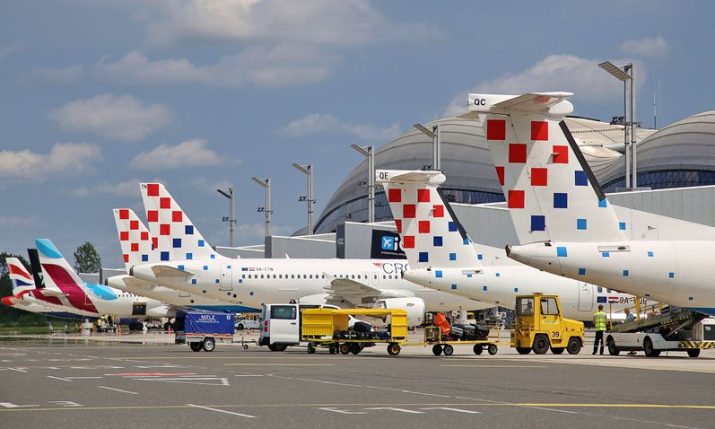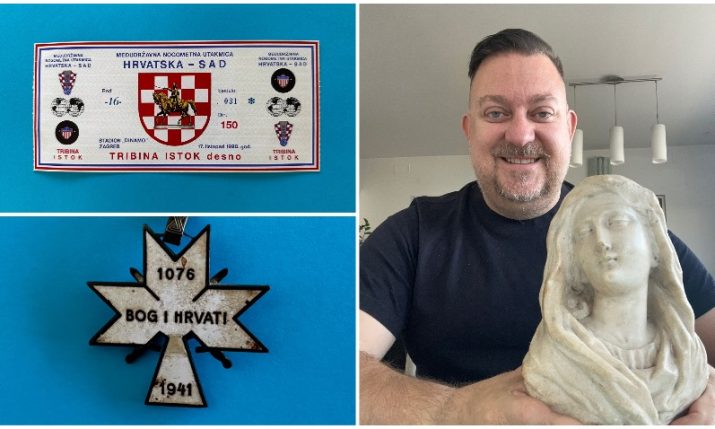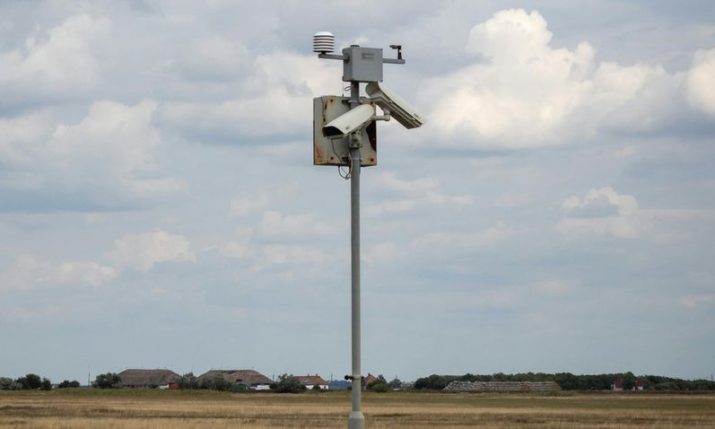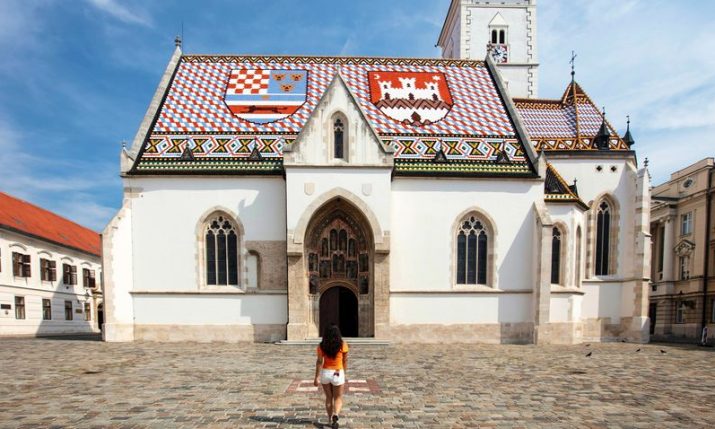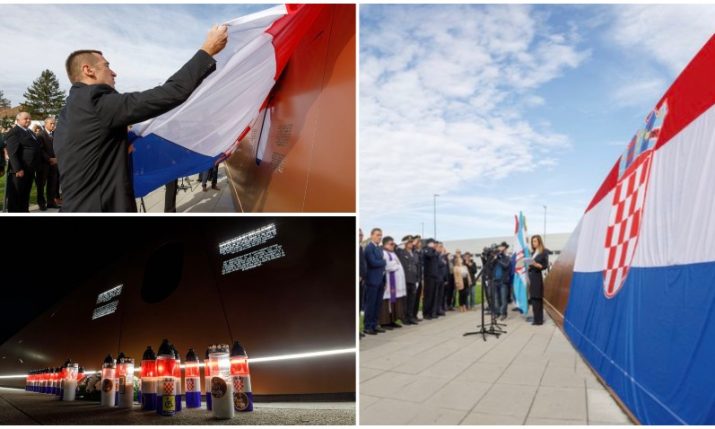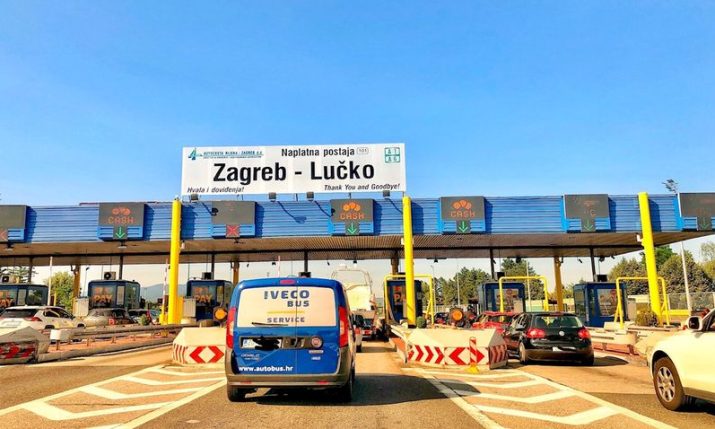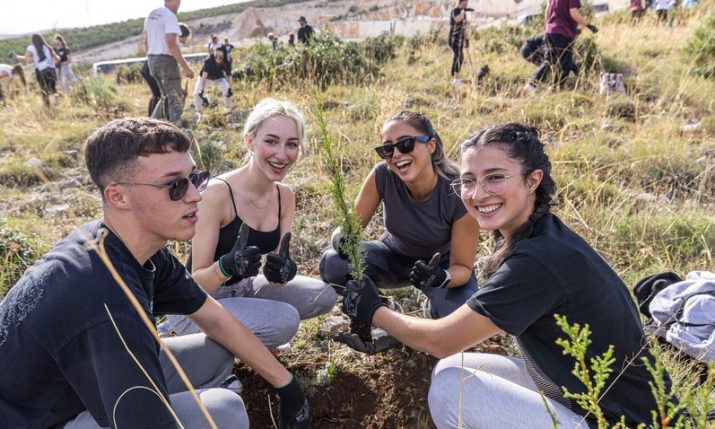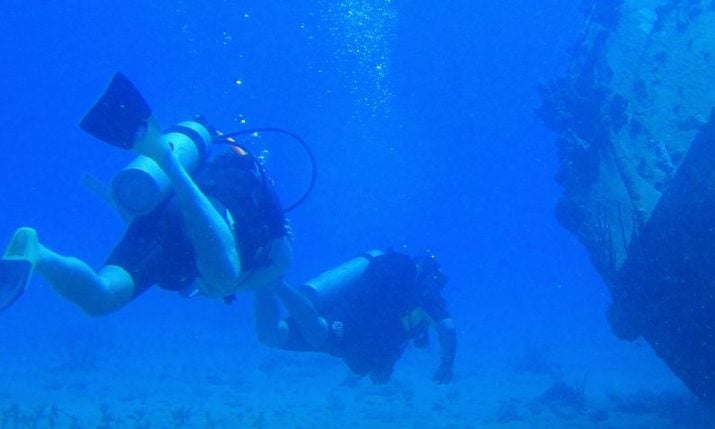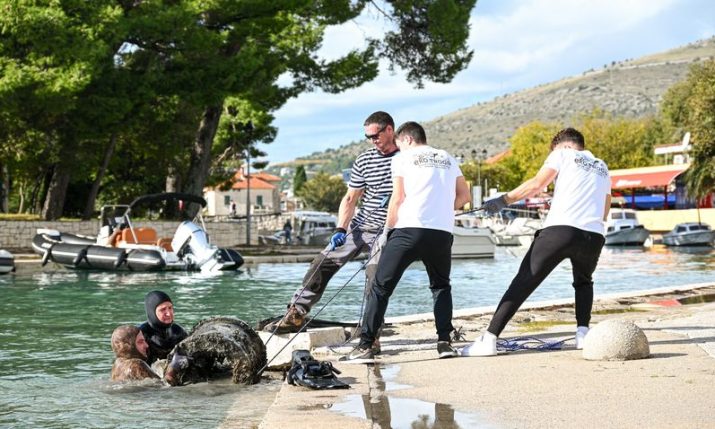Address by the President of Croatia Kolinda Grabar-Kitarović at the 73rd Session of the United Nations General Assembly
- by croatiaweek
- in News
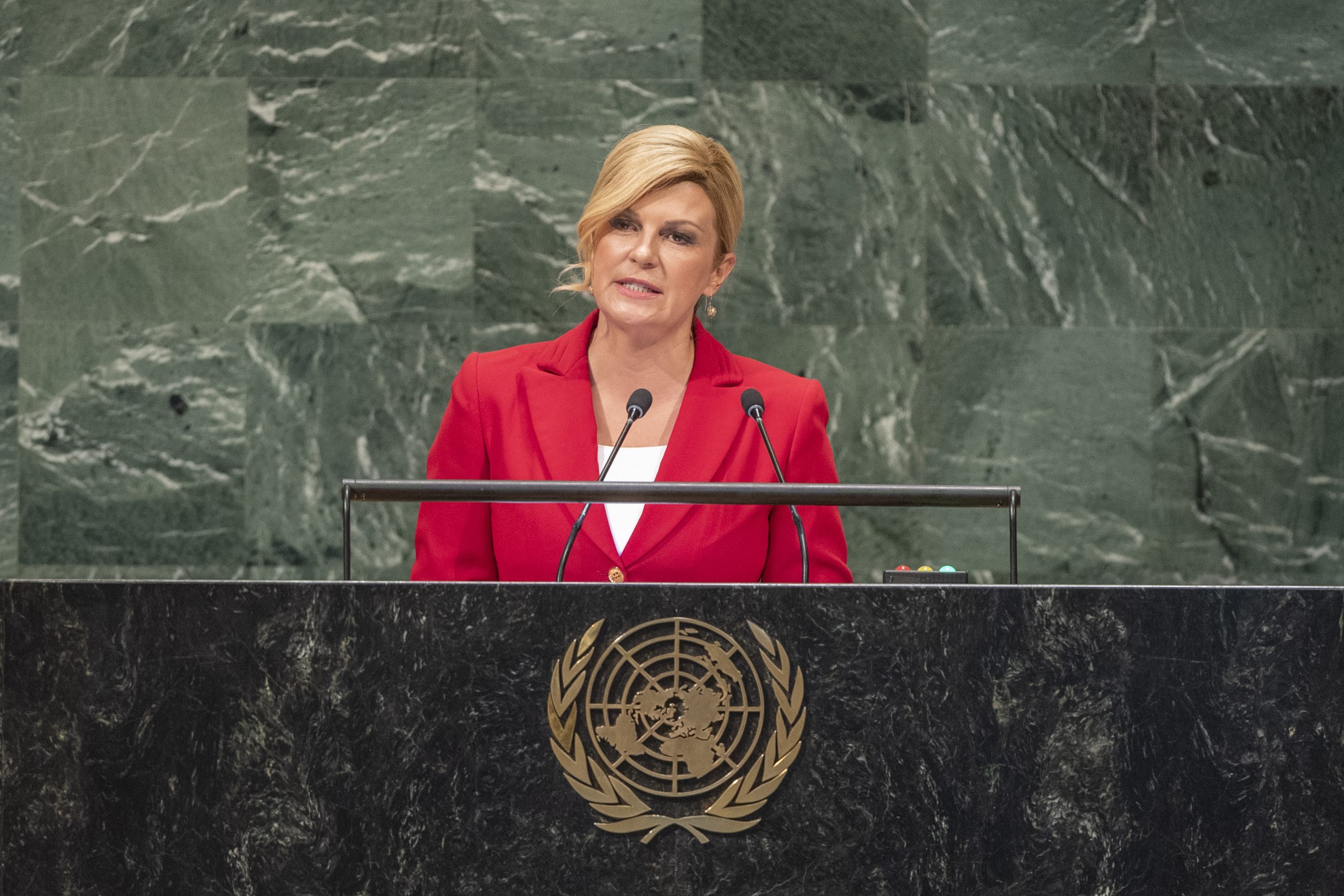
Kolinda Grabar-Kitarovic (Photo: Cia Pak/UN)
The President of the Republic of Croatia Kolinda Grabar-Kitarović delivered an address at the 73rd Session of the United Nations General Assembly at the UN Headquarters in New York:
„Your Excellencies, Distinguished Ladies and Gentlemen,
Madam President (María Fernanda Espinosa Garcés),
We live in times of great opportunities and serious challenges. We are more interconnected than ever, yet the world remains divided in many ways.
Technological developments have enabled our world to truly become a global village. Our citizens have become global citizens and are well informed and strongly driven by developments around the world. They expect global leadership in these times of rapid changes and great complexity and look for inspiration in all of us.
What is it that people are looking for today? What is it that they expect of a leader? Mighty words? They don’t really matter much anymore. Mighty deeds? Yes, indeed. But, foremost, what they expect of us are the simplest of gestures that bring us together, that show our compassion and respect for each other. They expect integrity and inspiration.
This summer – of all things – football triggered a global response, uniting us for a moment in our common aspirations for excellence.
After the success of the Croatian national team, I have received so many congratulatory letters and messages from all corners of the world. From China, Australia and Saudi Arabia, from France, to Trinidad and Tobago and Nepal. I thank everyone for their kind words.
“Team CROATIA really played well… they won our hearts“, kindly said Vishal Bagale of India, and Shabbir Allam wrote in Croatian: „SVI KAO JEDNO!“ – „We’re all like one!“
Gilberto Castillo of Colombia pointed out: “Muy merecida para un pais que se supera como gran ejemplo, despues de las duras situaciones historicas vivadas. Todo un ejemplo a seguir”.
Opshori Nondona, a 14 year old girl from Dhaka, Bangladesh, was especially persistent in getting her message through: “This year, the whole world has recognized a small beautiful country – Croatia – through the passion and the power of football. Now the world knows how powerful a small beautiful nation can be.”
This is just a fraction of such messages and what most of them had in common, what I could read through each of them, is that Croatia – a country not big in the size of its territory or the number of its population or its economic means – has thus become a metaphor for all of these kind people, of what a country can do to inspire others and to arrive on top of the world, winning the hearts of people worldwide, and rousing enthusiasm that each of their countries can do the same.

(Photo: UN)
“The value of a nation is not measured by its size,” underlined Bernard Stem of France. And, indeed, to excel you don’t need physical size; you need heart and persistence, and above all, you need to share a vision and to work together to make it happen. It is not the size of one’s territory that matters; it is the size and quality of ideas. Magnitude is not measured only in volume, but even more in determination to reach the goal.
Individual players might have shown great skill and technique in the field, but the reason that they triumphed was because they played together as a team.
Excellencies,
The United Nations is a place where we must show our willingness to act together. Our adversities are many: poverty, hunger, terrorism, extremism and instability, lack of education, gender inequality and exclusion of women in many societies, environmental hazards, endangered security and trampled human dignity. We – the leaders – should think of ourselves as a team that needs to work together, to take advantage of our strengths and to address our weaknesses in order to make our world a better place and to inspire excellence globally.
We should lead not only in managing crises and solving problems, but in spreading hope and optimism as well. We must demonstrate our humanity, solidarity and compassion. In doing so we must, above all else, respect each other. Respect is the most valuable asset that we have in interpersonal and international relations.
It is our responsibility as UN Member States to maintain the relevance, the effectiveness, and the efficiency of our Organization and to be up-to-the-task for whatever challenge that may arise.
However, raising awareness on the most pressing issues is not enough. We must also push for the adoption of the necessary instruments and frameworks and, most of all, secure their implementation. Without such an approach this podium will remain merely a self-serving global stage. Just words without deeds.
Throughout the years, we have learned, often the hard way, that governments and international organizations alike have their limits. This has also taught us of the value and importance of inclusiveness and of the important role that the private sector, academia, civil society and brilliant individuals can have in many different fields.
Croatia has many a Luka Modrić, and not only in sports. Our people excel in so many areas: Marin Soljačić who is a modern-day Nikola Tesla and develops a wireless transfer of energy; Iva Tolić with her breakthrough work in molecular cell biology; Ivan Mrvoš, developer of smart city furniture for the cities of future; Mate Rimac with his electric cars, to name just a few among the countless others.
Let us push formal limits of our organizations away from us! Let us embrace talent that is abundant around us!
Let us inspire through science and innovation, through our brilliant individuals at home and in our well established, hardworking diaspora around the world. Let us inspire through our dedicated and tireless work in the United Nations. Deeds, not words. Inclusion, not exclusion or isolation. Empowerment. Motivation. Those are all keys to success.
We are the global village, but more often than not, we tend to miss the opportunity to bring the global agenda to our homes, to our communities and our families. Likewise, we forget to include our homes, communities and families on the global agenda. It takes great tragedies caused by catastrophes, global crises, wars and climate change, to remind us of what we all stand to lose.
In today’s world, such an approach embodied in multilateralism is under ever-increasing strain. This is of particular concern since the most important issues for the mankind cannot be resolved by any state single-handedly, or in isolation. Multilateralism is indispensable, but I would agree with those who call for changes in the multilateral system. We should not be complacent, and we need to rethink decades old mechanisms and instruments in order to adapt them to the modern times and contemporary needs.

Kolinda Grabar-Kitarovic (Photo: Cia Pak/UN)
Excellencies,
As we celebrate two very important anniversaries this year – 70 years of the Universal Declaration of Human Rights and 25 years of the Vienna Declaration and Program of Action – it is a fitting occasion to remember that respect for human rights, democracy and the rule of law has always been a precondition for long-term stability, peace and development.
[In the human rights field Croatia is focused on vulnerable social groups for whom we continue to advocate equality, dignity, freedom and full respect of human rights. We are committed to fighting all forms of discrimination and xenophobia. Furthermore, we strive to ensure in practice that economic, social and cultural rights are mutually reinforced with civil and political rights.
Croatia has been a staunch supporter of the work of the Human Rights Council and its mechanisms since its establishment. Croatia’s membership in the Council is a valuable opportunity for us to give our share in the development and protection of human rights and fundamental freedoms throughout the world.]
We should not forget the 70th Anniversary of the Convention on the Prevention and Punishment of the Crime of Genocide either. We must learn from the tragedies of Srebrenica and Rwanda, “a shame for United Nations” as described by the great Secretary-General Kofi Annan, to whom I pay a special tribute. These darkest hours must never remain forgotten.
Ladies and Gentlemen,
This year Croatia marked its fifth year of membership in the European Union. Croatia is a telling example of the transformative force of the EU membership, of the benefits of accession to the area where peace, freedom, human dignity and prosperity are standards, not mere ideals. For these reasons, among others, Croatia strongly supports further EU enlargement to our south-eastern neighbourhood.
Resolving all outstanding legacies of war, while constructively engaging in regional cooperation and good neighbourly relations is essential. Within this framework we will continue to focus especially on the rights of minorities, missing persons, war crimes jurisdiction, victims of war, and domestic processing of war crimes.
Good and mutually beneficial neighbourly relations depend on a large degree on the words coming from across the border. For inflammatory and revisionist rhetoric, spurred by the need for domestic political needs, takes just a moment to be spoken; however, to repair the damage caused by takes much, much longer.
In Bosnia and Herzegovina, our closest neighbour and a country of utmost importance for Croatia, we see a risk of legal uncertainty and political and institutional instability after the upcoming October elections, due to the failure to amend the electoral framework so that it fully respects the rights and equality of the three constituent peoples – Bosniaks, Croats and Serbs – in line with the Constitutional Court decision on the legitimate and proportionate representation of constituent peoples at all levels of government, including the Presidency.
Although the Belgrade-Priština dialogue is for the two sides to resolve, we should be cautious and extremely careful when it comes to proposals with potential regional implications, most notably the ideas regarding territorial (ex)changes: Otherwise, we may (re)open the Pandora’s box of potential new territorial claims, potentially provoking serious instability and security threats.
There are inspiring developments demonstrating brave leadership as well. We warmly welcome the signing of the agreement on the name issue which has been recently reached between Skopje and Athens and hope that the referendum this Sunday will represent a crucial impetus for the country’s successful continuation of its Euro-Atlantic integration.
Ladies and Gentlemen,
An unprecedented number of people are on the move, like never before. We are experiencing a staggering record number of 69 million displaced persons, refugees and migrants in many parts of the world. This disheartening situation comes as a direct consequence of many on-going armed conflicts and crises, failing states, mass violations of human rights and security concerns. However, these mass migration movements are equally caused by economic, social and environmental challenges, poverty and climate change in particular.
An important step in the right direction to effectively deal with this challenge was the successful conclusion of the negotiation of the Global Compact for the Safe, Orderly and Regular Migration this past July. We believe that this catalogue of targeted measures and best practices can guide us in searching for the best solutions in a more coordinated manner and with a better outcome. I look forward to our meeting in Marrakech in December and commend all the efforts of the UN Special Representative Louise Arbour.
Another important instrument in dealing with the tragedy of forced displacement is the Global Compact on Refugees, which represents a milestone in resolving the global refugee situation. Its effective implementation is an opportunity for the international community to stand in solidarity by sharing the global responsibility in hosting the world’s refugees. They need our timely support through the concrete engagement of all of us.
Excellencies,
The best way to preserve and uphold global peace and security is through the UN framework. In this sense, Croatia remains steadfast and dedicated to the strengthening of the UN system, promoting a more effective, inclusive and rules-based global governance, based on international law, and to working with our partners to advance common goals and values.
This past June, the members of the General Assembly had the opportunity to renew their commitments to the Responsibility to Protect. Now, more than ever it is clear that the global community has come to a crossroads, at a point where we need our institutions, the UN entities, especially the Security Council, to act and remain relevant in global peacekeeping and in preventing situations leading to potential genocide, war crimes, crimes against humanity and ethnic cleansing.
International efforts to suppress terrorism and violent extremism remain at the peak of our common agenda in preserving peace and security. While terrorist organizations have suffered heavy losses they still remain a global threat.
Terrorist activities remain dangerous in the field as well as online. Cyber space and social media often are maliciously used by terrorist organizations in plotting and executing attacks, recruiting and spreading extremist narratives.
[Croatia welcomes the High-Level Conference of Heads of Counter-Terrorism Agencies, recently convened by the Secretary-General, which is a new and welcome platform for important dialogue in renewing our commitments to eradicating this persistent and evolving threat multilaterally.
Disarmament also remains high on our list of priorities. In this regard the Secretary-General’s Agenda for Disarmament comes as a timely and very relevant document, establishing a clear connection with the 2030 Agenda.
Croatia stands firmly committed to enhancing world peace through its participation in missions and operations of all relevant international organizations, particularly the UN, EU, AU and NATO in order that we may attain and sustain common international targets and objectives of global security. So far, we have participated in 21 UN peacekeeping missions around the world with 1500 troops.
Therefore, Croatia fully supports all the efforts in reforming and improving UN Peacekeeping Operations to render them more effective. We support Secretary-General’s Action for Peacekeeping (A4P) and Declaration of Shared Commitments on UN Peacekeeping Operations, to be formally endorsed later today.
Although there is growing recognition for the role of women as peacemakers, the number of women participating in decision-making in the sphere of peace and security worldwide remains low. Grave abuses and violence against women, including sexual violence and rape, continue to be devastating. We particularly deplore crimes of sexual abuse. There should be a zero-tolerance level towards their perpetrators, whether they are combatants in a conflict or members of peacekeeping forces.
As one of the signatories of the Secretary-General’s Compact for the Commitment to Eliminate Sexual Exploitation and Abuse Croatia is strengthening national measures and international cooperation to ensure justice for victims and accountability for perpetrators of sexual and gender-based violence.
Deeper social transformations are required as well to remove structural barriers to women’s participation in the domain of peace and security. Croatia remains strongly committed to the effective implementation of Women, Peace and Security agenda in the domestic context but also at the regional and global levels.
In this regard, we highly commend Secretary General’s pledge to respect gender parity in all his appointments and strongly support the implementation of The United Nations-wide Strategy on Gender Equality.]
Ladies and Gentlemen,
By adopting the 2030 Agenda, along with the historic Paris Agreement on Climate Change, and the Addis Ababa Action Agenda, we have sent a powerful message that there is hope for a brighter future.
However, to succeed in our endeavours, we need to mobilize all partners to work together. This way we can achieve social progress, protect the environment, create economic growth and build a more just, stable and peaceful world.
Runaway climate change is one of the most serious threats that we regularly witness – from heat waves and forest fires, no longer contained to California or Mediterranean, but also in places such as Scandinavia – to historic typhoons in Japan or in the Philippines, and the melting of ice sheets on the Planet’s poles.
No country can shield itself from the negative effect of climate change. Croatia is no exception to that. With over one thousand islands, islets and reefs and a rich history of Mediterranean heritage, implementing goals of the 2030 Agenda now is crucial for Croatia´s future.
All over the world, Croatia included, we are recording changes in sea temperature and have witnessed unprecedented and irreversible changes in ecosystems. In Croatia’s beautiful Adriatic Sea, one of the cleanest in the world, we have already registered more than 20 new species of tropical fish, some of them extremely invasive that can irreparably shift the environmental balance.
Soon we may be exposed to the danger of rising sea levels, which is already a question of existence for many small islands around the world. It is estimated that the sea level in the Adriatic will rise by almost half a meter by 2100, submerging parts of world heritage places and treasures like Split, Trogir or Dubrovnik. This is why climate action is not an abstract issue, but a serious matter requiring our constant and undivided attention.
One of the most important climate action and sustainable development issues for Croatia is reversing demographic trends on our islands. They are turning into places where schools are without children, and churches record funerals rather than baptisms and weddings.
And yet, the problems that many of these islands face are common globally. We need to improve affordable transportation and connections between the islands and the mainland. We need to resolve water supply and provide clean water and sanitation. We need to invest in education, technology, science and innovation so that societies and families will once again flourish on the islands.
Blue Growth could be a solution. It is a long-term strategy to support sustainable growth in the marine and maritime sectors as a whole. Seas are drivers of the economy and have great potential for innovation and growth, set to grow at twice the rate of the mainstream economy by 2030.
Growth is especially welcome in a number of areas, such as: sustainable coastal tourism, new health benefits, better connectivity of islands, sustainable blue growth and jobs, marine biotechnology, renewable energy, managing maritime ecological threats and preserving eco-systems and biodiversity, but also improving safety and security in terms of maritime traffic and cross-border maritime pollution.
One of the issues that I would like to emphasize today in particular is marine litter, a problem of increasing concern that threatens marine life in all the world’s oceans, impacting more than 600 marine species. The Croatian coastal areas are severely affected by poorly managed waste from our Southern Adriatic neighbours.
We have to address the rising problem of plastic pollution in our seas and oceans urgently if we want to leave a liveable world to future generations. Plastic debris – and each year around eight million tons of it ends up in our oceans and seas – is particularly worrying because it is resistant to environmental breakdown.
Plastic pollution does not only impact sea life, it also carries toxic pollutants into the food chain with us humans on top of it. We can solve this problem and we can start by educating and engaging everyone in a conversation to rethink plastic, by challenging society’s perception that this indestructible substance can be treated as “disposable”.
Particular attention should be given to The Ocean Cleanup project in this regard. It is designing and developing the first feasible method to rid the world’s oceans of plastic and its first mission to remove 50% of the Great Pacific Garbage Patch in just five years started several weeks ago. In the media they have called it Pac Man, referring to a popular old videogame.
The young man behind the invention is a brilliant scientist of Croatian origin living in the Netherlands Bojan Šlat, and he well deserves to be given credit here today, beneath the UN logo, which clearly shows our oceans.
My country is already actively preparing for the fulfilment of its obligations under the Paris Agreement. [Our goal is that transition to low carbon development in Croatia is achieved as soon as possible and that full support is given to all who see this as an opportunity for a new type of economic growth and development.
It is important that the action to reduce the greenhouse gas emissions is extended to all countries. Therefore, we support Talanoa Dialogue for Climate Ambition ahead of the UN Climate Summit in December in Katowice, which will provide an opportunity for the EU to highlight its successful experiences.
On this topic, let me conclude by welcoming the One Planet initiative and its follow-up which will be held tomorrow and will be an opportunity to strengthen the worldwide ambition and momentum of joint efforts of all stakeholders in addressing climate change and the comprehensive implementation of the Paris Agreement.]
Excellencies,
This was the year of UN reforms in more ways than one; not only through results achieved in the pivotal sectors of peace and security, development and UN management, but also in the transformational nature of our mutual efforts to make our Organization fit for the 21st century. The world has changed profoundly since 1945 and the birth of the UN. In our reforms it is essential that we strike the right balance between the maintenance of the basic framework based on the UN Charter and the flexibility required by new realities and contemporary needs. In pursuing UN reforms we must not lose sight of the 2030 Agenda.
We need a UN capable of coping with unceasing changes and growing challenges in the international arena, be it in the field of regional security, conflict management, threats to the environment, human rights, or frontline technologies that transform profoundly the fields of labour and disarmament alike.
I use this opportunity to highly commend the Secretary-General and his team for their tireless reform efforts. There is still a lot of work ahead of us, but we should be content with the results and trajectories established in 2018.
Ladies and gentlemen,
If we want to move forward, and leave no one behind; if we truly strive to make the UN more relevant and, in doing so, more effective, we also need to realize that the UN is and should be much more than just New York, Geneva, Vienna, Nairobi, or any conference location.
Multilateralism starts from our own homes and in our own minds. It must not be an annual event. It needs to be our daily routine, a way of doing business in the world.
Everything that we want to achieve globally, everything that we have agreed so far under this dome, will be easier to accomplish with the understanding and support of our citizens.
In order to face all the adversities and adversaries that I mention in my speech, both as delivered in the more complete, written version that you have received, we must show determination to take on the risk of decision-making. We must open ourselves to new ideas. And we must show emotion, empathy and, above all, enthusiasm. Enthusiasm is contagious!
As Nelson Mandela (Madiba), whose centenary we celebrated two days ago, said, “it always seems impossible until it’s done”.
Thank you!“

